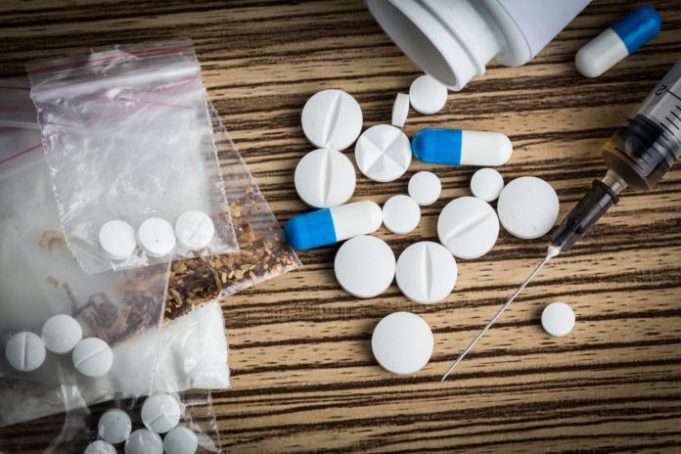You may not know it from the news, but African Americans are getting hit very hard by the American opioid epidemic. For example, among African Americans in urban counties, deaths sharply rose by 41 percent in 2016, according to the Centers for Disease Control and Prevention.
“Even now, a lot of people still think the opioid crisis is just something that’s happening in the white communities. People don’t think it is going on in the black community … but it is,” Charlie Daniel, founder of the African American Opioid Coalition Dane County, tells Madison365. “It’s especially hitting African Americans in the Midwest hard for some reason. It’s going on in Illinois, Minnesota, Iowa and Michigan … there are especially high population of African-Americans using opiates in those states.”
With that in mind, the African American Opioid Coalition Dane County, along with A Safe Communities Project and Safe Communities MDC, will host “Comforting Spaces – A Town Hall Event,” an evening of love, joy, heartache, and challenges shared by a panel of grandparents who are raising their grandchildren because their own children have been impacted by addiction. The event will take place tonight, 5-8 p.m., at Badger Rock Neighborhood Center, 501 E Badger Rd.
“One thing we are seeing is an increase in the number of families where grandparents are taking care of their grandchildren because of the opioid epidemic and the fact that so many families are affected by it,” Cheryl Wittke, executive director of Safe Communities of Madison and Dane County, tells Madison365. Safe Communities is a nonprofit coalition of over 350 organizations working together to save lives, prevent injury and make the community safer. “This is a great opportunity to support these families and to continue to get the word out that there are constructive things we can do to address this issue … as terrible as it is.
“Public health recently released some statistics showing that death rate from opiate overdose is actually higher for African Americans than it is for whites,” Wittke adds. “I think that definitely has flown under the radar. It’s important for people to understand that they are at risk and that this affects everyone. I think the fact that the African American Opioid Coalition has formed and has been doing such incredible work is awesome. We’re just so proud of the work that they are doing.”
Daniel started the African American Opioid Coalition Dane County a year ago last February because she saw the tremendous need for it in Madison.

“It’s a coalition of approximately 35 African-American professionals, counselors, and people in recovery who come together to talk about the opioid epidemic in the African-American community,” Daniel says.
“We have great coalition members from all sectors of the community. We have representatives from UW Health community, Briarpatch, State Public Health, North/Eastside Senior Coalition. Every sector you can think of is in the coalition,” she adds.
The coalition does various activities to raise awareness including a recent “Med Drop Sunday” at eight African-American churches around Dane County. The coalition holds meetings at Mt. Zion Church on Madison’s south side.
“I want to give kudos to Mt. Zion Church. When I first started this coalition, they opened up the church for me to host my meetings … which is something good for a Baptist church to open up their place of worship to talk about this important topic,” Daniel says. “Special kudos go out to Rev. [Marcus] Allen at Mt. Zion
Daniel says that in many of the reports she has been seeing that in some places the opiate usage among the black population is surpassing the white population in numbers. “It’s not something that people really know about,” she says. “So, it’s important that people start speaking up about it and talking about it. Absolutely.”
“Comforting Spaces – A Town Hall Event” will feature three grandparents who have children and grandchildren affected by the opioid epidemic and will also feature a panel presentation by three members of the African American Opioid Coalition (AAOC) on the law, health, and housing as it relates to African Americans who are suffering from addiction.
“We will have three grandfathers on our panel who are taking care of their grandchildren because their children have been incarcerated or have lost custody of their children because of substance abuse,” Daniel says. “We will also have a panel of three coalition members – one from law, one from health and one from housing – who will talk about the challenges that African Americans have in all three of those sectors.”

“I think we try to enter into the conversation offering some solutions and some hope … and that’s really what this is about,” Wittke adds.
Community members will be able to ask questions from the panelists and hopefully get all of the answers that they need. There will be delicious food and refreshments prepared by Kipp’s Cuisine. There will be free lock boxes for people who want to lock up their medication.
“We’re finding that teenagers are stealing their parents and grandparents’ pills and either using them or selling them,” Daniel says. “So we want folks to start locking up their medication.
“This is an event for everybody. White people, Latinos, Asians. We hope that everybody comes,” she adds. “This is something that affects everybody. And even if it’s not affecting you at this moment, it could very well in the future.”




























